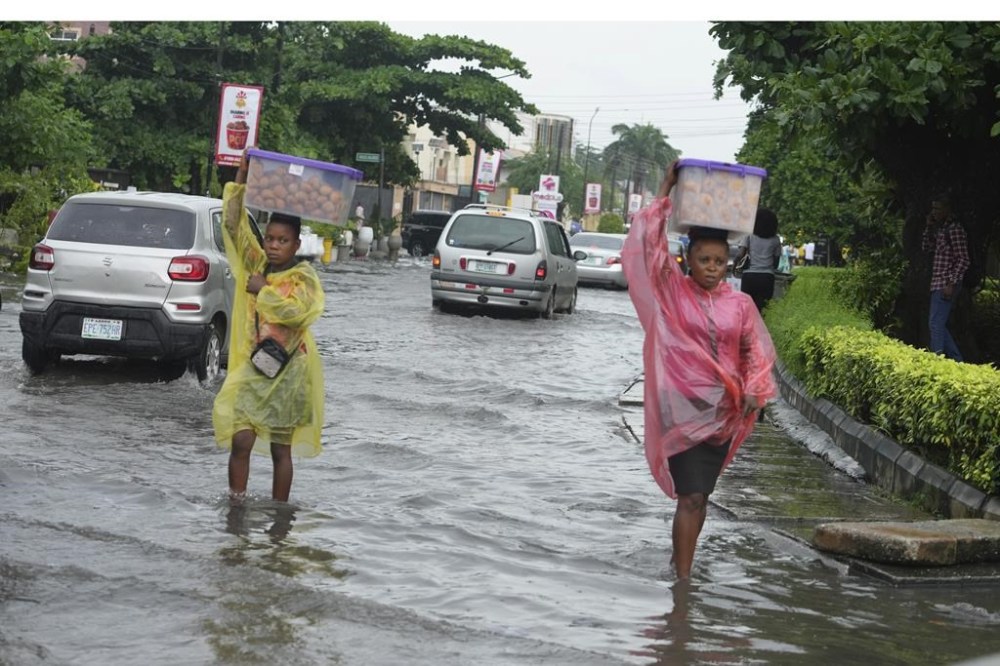African nations are losing up to 5% of their GDP per year with climate change, a new report says
Advertisement
Read this article for free:
or
Already have an account? Log in here »
To continue reading, please subscribe:
Monthly Digital Subscription
$0 for the first 4 weeks*
- Enjoy unlimited reading on winnipegfreepress.com
- Read the E-Edition, our digital replica newspaper
- Access News Break, our award-winning app
- Play interactive puzzles
*No charge for 4 weeks then price increases to the regular rate of $19.00 plus GST every four weeks. Offer available to new and qualified returning subscribers only. Cancel any time.
Monthly Digital Subscription
$4.75/week*
- Enjoy unlimited reading on winnipegfreepress.com
- Read the E-Edition, our digital replica newspaper
- Access News Break, our award-winning app
- Play interactive puzzles
*Billed as $19 plus GST every four weeks. Cancel any time.
To continue reading, please subscribe:
Add Free Press access to your Brandon Sun subscription for only an additional
$1 for the first 4 weeks*
*Your next subscription payment will increase by $1.00 and you will be charged $16.99 plus GST for four weeks. After four weeks, your payment will increase to $23.99 plus GST every four weeks.
Read unlimited articles for free today:
or
Already have an account? Log in here »
Hey there, time traveller!
This article was published 02/09/2024 (471 days ago), so information in it may no longer be current.
DAKAR, Senegal (AP) — African nations are losing up to 5% of their GDP every year as they bear a heavier burden than the rest of the world from climate change, a new report said Monday after one of the continent’s hottest years on record.
The World Meteorological Organization said many African nations are spending up to 9% of their budgets for climate adaptation policies.
“Over the past 60 years, Africa has observed a warming trend that has become more rapid than the global average,” said WMO Secretary-General Celeste Saulo, warning that it is affecting everything from food security to public health to peace.

Africa is responsible for less than 10% of global greenhouse gas emissions. But it is the most vulnerable region to extreme weather events including droughts, floods and heatwaves, the WMO said.
The new report focuses on 2023, one of Africa’s three hottest years on record. It urged African governments to invest in early warning systems as well as meteorological services. If adequate measures are not put in place, up to 118 million Africans will be exposed to droughts, floods and extreme heat by 2030, the report warned.
In sub-Saharan Africa, the costs of adapting to extreme weather could be $30-50 billion per year over the next decade, the report estimated.
The effects of climate change have been harrowing. Between September and October 2023, approximately 300,000 people across West Africa were affected by floods, the report said. Zambia experienced the worst drought in 40 years, affecting nearly 6 million people.
The pattern of extreme weather events in Africa continues in 2024, experts said.
In the Sahel region south of the Sahara, flooding has affected over 716,000 people this year, according to the United Nations. In Mali, authorities last week declared a national disaster over floods which have affected 47,000 people since the beginning of the rainy season.
West Africa experienced an unprecedented heat wave earlier this year that led to a surge in deaths.

